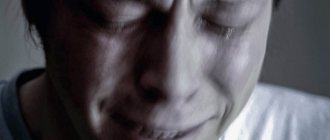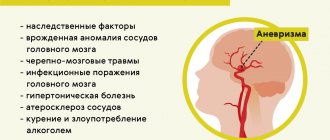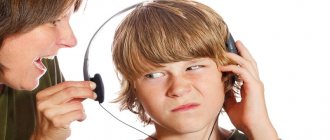Logoneurosis is a violation of the smoothness and tempo of speech in the form of delay, change, repetition or prolongation of individual sounds, syllables and words. This problem first appears in children aged 2-6 years. If logoneurosis occurs, the child must be shown to several specialists, since speech impairment can be due to various reasons.
Kinds
Stuttering that occurs in adults manifests itself only in communication with others, if the disorder is not associated with organic damage to the brain.
Logoneurosis is divided into 2 types:
- Stuttering of a neurotic nature. The reason is a stressful situation.
- Organic disorder or logoneurosis of neuron-like form. Occurs under the influence of mechanical damage to the brain. This occurs due to birth trauma, tumors, strokes, oxygen starvation or ongoing inflammatory processes. The symptoms of stuttering in this case in a person do not depend on his emotional state. Stuttering in this case is accompanied by convulsive twitching of the facial muscles and various body movements.
In medicine, according to the characteristics of convulsive movements, 3 types of stuttering are distinguished:
- Clonic. In this case, spasms of the muscles that are involved in pronouncing sounds contribute to the involuntary duplication of consonants, individual syllables or words.
- Tonic. Prolonged contraction of the muscles of the mouth and throat leads to a delay in speech, lengthens pauses between words, a person constantly repeats vowels and some voiced consonants.
- Mixed type. It combines movements of types 1 and 2.
Logoneurosis in adults (treatment is much more difficult than in children) in many cases has childhood roots. Whatever the root cause, neurotic or organic, the disease does not go away on its own with age, but becomes persistent, which greatly complicates treatment. Treatment should begin at the first sign of stuttering, even in childhood.
Why is a speech therapist so necessary for logoneurosis?
It is speech therapists who are able to assess the severity of stuttering, the condition of the speech apparatus and participate in the development of complex treatment for logoneurosis. Most often, children of school and preschool age attend classes with a speech therapist, but cases of observation by this specialist and the adult population are not excluded.
Speech development with a speech therapist is an effective but lengthy technique that includes:
- Formation of a “template” for speech motor skills. The speech therapist must teach the patient to correctly pronounce each letter, syllable, and word. This stage allows you to establish the timbre of the voice, its sonority, and correct the movements of the articulatory muscles;
- Consolidation of the material obtained in the first stage. Includes reading books aloud, making sentences and commenting on any events;
- Automation. Application of acquired skills in everyday life: communication with loved ones, relatives, friends. The more a person talks, the faster speech defects are corrected.
RELATED MATERIALS: Amusia: why 20% of the world's population do not perceive music at all?
Little children learn to sing songs and read poetry with expression.
Stages and degrees
Stuttering can be permanent or temporary. Symptoms intensify when a person is nervous or worried.
According to the nature of the course of the disease, the following stages are distinguished:
- Constant. Once a speech disorder occurs, stuttering is present in all situations involving the need to communicate through speech.
- Intermittent. Speech problems sometimes disappear and reappear. This is due to emotions and stress.
- Periodic. Stuttering may disappear for a certain period of time, a person will forget about it, and then it returns again under the influence of unfavorable factors.
Avoiding a problem is easier than treating it
There are two main groups of actions to prevent logoneurosis. One group includes maintaining and strengthening the child’s health, the other is responsible for organizing speech development. Important factors for disease prevention:
- balanced and healthy diet;
- work and rest schedule;
- sufficient and complete sleep;
- exclusion of the development of stressful situations;
- dosed viewing of TV and computer;
- frequent walks in the fresh air;
- playing sports;
- communication with peers;
- teaching smoothness and slowness of speech;
- be able to think correctly and express your thoughts;
- pronounce sounds correctly;
- watch your facial expressions;
- create a favorable psycho-emotional environment for the child.
Symptoms
Noticeable signs of stuttering: frequent hiccups before speaking, reluctance to continue a conversation, lack of self-confidence during a conversation. Often people try to avoid conversation by nodding their heads, simply assenting, or avoiding public speaking.
Visible symptoms of logoneurosis:
- lengthening of sounds in words, unusual for ordinary speech;
- repeated repetition of individual sounds, syllables or even words;
- tense expression of muscles and entire face;
- difficulty breathing, lack of air;
- reluctance to start a conversation;
- neurotic state before the conversation begins.
Reasons for appearance
Logorneurosis in adults (treatment depends on the cause of the disorder) has slightly different consequences than in children. If children experience only psychological discomfort when communicating, then stuttering in an adult affects his social life. Speech disorder is very often an obstacle to building a career, starting a family and living comfort.
The main factor that influences the development of stuttering in adults has not yet been sufficiently studied. In medicine, there are various theories explaining the pathogenesis of this disorder. Many are inclined to believe that several factors are involved in its development. This makes it difficult to determine the exact cause of stuttering.
19% of patients with this disorder had a genetic predisposition to it.
And yet the main reasons have been identified:
- Organic brain damage. Diseases of the head, central nervous system, and brain injuries cause stuttering due to abnormal nerve impulses. This form of the disorder is characterized by convulsive contractions of the facial and respiratory muscles. When talking, patients, in addition to facial muscle contractions, perform motor activity with their hands and head.
- Causes of a neurotic nature. Stress, difficult situations experienced in youth, and emotional experiences leave an imprint on speech. Logoneurosis often manifests itself before public speaking or competitions. In this case, stuttering has a short period of action.
- Incorrect or incomplete treatment of logoneurosis in childhood. Incomplete therapeutic actions aimed at eradicating stuttering in children lead to the disorder becoming chronic. In this case, treatment in adults will take longer and be more difficult.
- Hereditary factor. This category includes brain diseases that are genetic in nature, physiological characteristics of a person, or hereditary predisposition.
In adults, the causes of logoneurosis often affect the duration of its treatment.
Diagnostics
The diagnosis of stuttering is not made immediately. Small pauses between words, rare repetition of words and syllables are not always an indicator of the presence of a disorder. Minor speech disturbances may indicate strong excitement, haste, or, conversely, thoughtfulness.
Some aspects of speech (singing, long pauses between words) may be distinctive features of a race or geographic region. Temperament may also contribute to changes in speech characteristics.
Moreover, it is not enough to diagnose “stuttering”; it is necessary to determine what neurotic type this speech disorder belongs to, since this will determine the correctness and effectiveness of the chosen treatment methods.
The specialist can prescribe various tests (blood and urine), as well as instrumental diagnostics, which can reveal organic brain damage at different stages. Instrumental methods in this case include MRI (tomography) of the brain and electroencephalogram (EEG).
All adults have many differences. It is necessary to determine the cause of the speech disorder in order to understand which treatment methods will be most effective.
This differential diagnosis with the participation of a speech therapist, psychologist, neurologist, psychiatrist based on a complete medical history, using the results of instrumental and laboratory studies can lead to a complete picture of the disease, establish or refute a hereditary predisposition to develop a plan for the effective control of this pathology.
When to see a doctor
You can first make or disprove the diagnosis of stuttering by performing a couple of tests:
- Count the number of unnecessary pauses when speaking a text of 100 words. Up to 7 breaks is the norm. More than 10 pauses - a high probability of developing speech pathology.
- Watch your facial expression. If your facial muscles look tense during a conversation, there is a possibility of speech impediment. This is evidenced by the presence of pauses between words lasting from 1 to 30 seconds.
These tests are not accurate research methods, but are only a reason to begin a more thorough professional diagnosis.
Treatment methods
Logoneurosis in adults (treatment depends on the severity) has several aspects related to the physiology, socialization and mental state of a person. And only comprehensive treatment that covers all these aspects can give good results.
The choice of treatment methods for stuttering in adults depends on whether the speech disorder is of a neurotic or organic type. Treatment for the organic type of stuttering comes down to fighting the problem that gave rise to it.
And since the cause of this stuttering is serious disorders in the functioning of the brain, often complicated by a genetic factor, the treatment of stuttering and its root cause can take months and years.
Neurotic stuttering in adults can be treated much easier and more successfully. An integrated approach is provided for it, including medication and alternative treatment prescribed by a neurologist, as well as systematic work with a speech therapist, psychologist and psychotherapist who will help the patient restore the normal rhythm of speech, overcome fears, join the normal rhythm of life, and establish communication.
Medications
The method of treatment with drugs is aimed at eliminating the convulsive syndrome and stabilizing the functioning of the central nervous system, which is responsible for the occurrence of various nervous reactions.
Medicines prescribed in this case can be divided into 3 groups:
- nootropics, which improve brain function;
- sedatives, relieving nervous tension;
- antispasmodics, which have an anticonvulsant effect.
| A drug | Action | Purpose | Dosage | Contraindications | Price, in rub. |
| Nootropics | |||||
| Phenibut | Analgesic, psychostimulating effect, prevents the formation of clots in the vessels of the brain, destruction of body cells and promotes their regeneration. | This medicine can be prescribed by a doctor as a medicine for a neurotic disease, which is expressed as a fear of communication. | Phenibut tablets can be taken at any time of the day, preferably after meals, swallowing the tablet whole. | pregnancy and lactation, liver failure, hypersensitivity to a component of the drug. The drug has virtually no side effects. You may feel drowsy when you start taking the tablet. The same symptom, especially in combination with nausea and vomiting, may indicate an overdose of the drug. | 260 |
| Sedatives | |||||
| Afobazole | A non-addictive tranquilizer. | Its action is aimed at eliminating anxiety, fear, and associated nervous, muscular and respiratory reactions. | It is recommended to take the drug after meals in the amount of 1-2 tablets (10 mg) three times a day. Typically, the course of treatment lasts 14-28 days, but if necessary, the doctor can increase the dosage (up to 60 mg per day) and the course duration up to 3 months. | Pregnancy and breastfeeding, individual intolerance to the drug or its individual components, as well as age less than 18 years. | 400 |
| Novopassit | A preparation based on a rich collection of plants (valerian, lemon balm, St. John's wort, hawthorn) | It has a good sedative and calming (anxiolytic) effect. Available in the form of tablets or solution (syrup). | The usual single dose is 1 tablet or teaspoon of syrup (5 ml), pure or diluted in water. The drug is taken 3 times a day before meals. If the drug causes depression, the morning and evening doses are halved, and the daily dose remains unchanged. | Age under 12 years, myasthenia gravis (genetic neuromuscular disease), individual intolerance to the drug or its components. Side effects: discomfort in the digestive tract (changes in density, stool), less often dizziness and drowsiness, as well as allergic manifestations and weakness. | 250 |
| Antispasmodics | |||||
| Magnerot | An anticonvulsant drug replenishes magnesium deficiency in the body, which causes seizures and increased excitability | Among antispasmodics for stuttering in adults, doctors usually prescribe Mydocalm, Magnerot and Finlepsin in combination with vitamin B preparations. | Taking the drug can be divided into 2 stages: 7-day course: 2 tablets 3 times a day. In week 2: 1 tablet 2-3 times a day. The full course of treatment lasts from 2 to 4 weeks, sometimes more. The tablets are taken with a small amount of water before meals. | Kidney and liver diseases, bladder stones, lactose intolerance and lactase deficiency, age under 18 years, as well as individual intolerance to the drug. Side effects: common ones include changes in the frequency and quality of stool and the reaction of the immune system. | 400 |
Many drugs have contraindications, such as kidney and liver diseases, bladder stones, lactose intolerance and lactase deficiency, age under 18 years, as well as individual intolerance.
Traditional methods
Many patients, and most often their relatives, tend to treat stuttering at home. But at home there is no way to implement an integrated approach to treatment. But it is possible to train at home if you first study some elements of self-help, such as self-study, self-hypnosis, breathing exercises, for example, according to Strelnikova’s method, and the use of yoga elements.
Various breathing exercises for adults, in accordance with Strelnikova’s system, should be based on proper breathing during movements: a sharp inhalation and a long, calm, quiet exhalation, the active participation of the diaphragm during the breathing process. All active movements (squats, head turns, body bends) are performed only by inspiration.
Speech gymnastics at home helps develop proper breathing during a conversation.
Examples of tongue twisters for training speech and breathing:
- There is grass in the yard, there is firewood on the grass: one firewood, two firewood - don’t cut wood on the grass of the yard.
- Advertising for grips has seams with coverage, but potholders without coverage have been snatched up.
- Our head overtook your head, overdid it.
Aromatherapy has a positive effect.
All the esters that are present in essential oils can ease nervous tension and calm fears. These include oils of bergamot and pine, rose and sandalwood, rosemary and basil, sage and geranium, and lavender. The inhalation procedure should be repeated 3 times a day. Aromatic oils mixed with kefir can be used for bathing. To do this, take 100 g of fermented milk product and add 5-6 drops of any of the above essential oils. The oil-kefir mixture is added to a bath of warm water.
Logoneurosis in adults (treatment also includes herbal remedies) can be stopped with herbs in the form of decoctions and infusions.
Here are some of them:
- Take 5 g of aromatic rue, chop, add 2 glasses of water and boil for 5 minutes.
- Filter and cool slightly. Hold the hot broth in your mouth until it cools completely. The procedure is repeated very often (at least 6 times a day).
- Prepare a herbal mixture of chamomile, mint, nettle and valerian, taking 0.5 g of each herb.
- Pour a glass of boiling water over the herbal mixture and simmer for 15 minutes. Drink ½ glass of infusion 2 times a day.
Other methods
In addition to drug treatment, patients with logoneurosis are treated with hypnosis and acupuncture. One of the methods of therapy is the help of a speech therapist, who either corrects existing speech skills or instills new, correct ones. About half an hour after these exercises, massage treatments are prescribed.
Massage for stuttering in adults is presented in the form of reflexology (acupressure) and osteopathy (the effect of gentle massage on the muscles), which have a positive effect on the articulatory vocal apparatus and the respiratory system.
At the third stage of stuttering treatment in adults, therapeutic exercises, a swimming pool and a sauna are indicated.
There are many different methods of complex impact on the problem using various speech training systems, starting with visual communication and ending with public speaking in a team (a group of patients with the same problem).
Physiotherapeutic treatment of stuttering, in addition to reflexology and osteopathy, includes:
- Darsonvalization of the muscles of the face and neck is the effect on the muscles of alternating current of high frequency and voltage, but with low strength and short-term exposure to sinusoidal currents on the larynx.
- Procedures for restoring and optimizing the functions of the central nervous system (electrotherapy, therapeutic baths and massage, franklinization, alpha massage, various types of relaxation).
Fighting stuttering at home
Most classes can be done at home. Some exercises, especially their first lessons, are carried out together with a specialist. Subsequent ones, when their mechanism is clear, you can do them on your own. The only exceptions are those that require special equipment, tools and other items. It is also an exception to have complex diagnoses that are caused by disorders in the nervous system or require the help of a psychotherapist.
Self-help techniques
Shows the positive effect of auto-training. Such exercises consist of practicing in front of a mirror to see your own facial expressions. They take about an hour and do not require much effort from the patient.
The main requirement is to maintain a calm, measured bottom pattern, have long, healthy sleep, give up bad habits, and not be stressed.
Possible complications
Stuttering can lead to problems:
- Difficulty communicating with other people.
- Constantly avoiding situations that require speech.
- Loss of social or work participation in production, career ladder.
- Receiving ridicule and ridicule from other people.
- Low self-esteem.
If treatment is not started on time, stuttering can take a chronic form, when a person develops stereotypes of behavior and speech skills, and over time develops a fear of communication, causing severe anxiety. Verbal disturbances may be accompanied by nervous reactions of the face and body, self-doubt, rapid fatigue from talking, worsening mood, and decreased comfort in life.
A visible positive result can be obtained only if the patient has a strong desire to get rid of the rhythmic speech defect. Relatives and friends can provide significant psychological support and assistance in the treatment of logoneurosis. Treatment for an adult can be long, and he must be prepared for this, be patient and activate his willpower.
Video
In the video, an adult man tells his story - how hard it was for him to study at school, what a torment literature classes were for him, and how often stuttering interfered with his life. The problem followed him even after school. What helped the hero of the video get rid of his illness was the need to overcome fear and anxiety when communicating with a stranger.
Living with a stutter is difficult, because success in society, self-esteem, personal life, and career advancement depend on the ability to communicate. If the symptoms of logoneurosis are combined with other neurotic manifestations, it is necessary to find out the causes and cure it.











